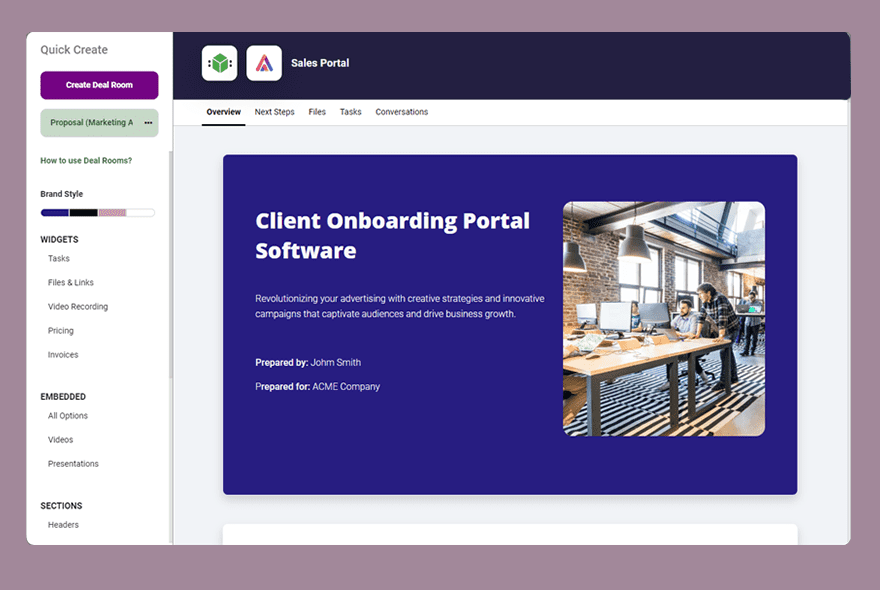The E-Sign Act legitimizes and enforces validity of electronic signatures. In simple terms, the Act does not differentiate between handwritten, hardcopy signatures or electronic ones. They are equally legitimate and enforceable by law whether in the United States, the EU or elsewhere in the world. They cannot be denied solely upon the notion of being an electronic signature. This in turn makes electronic contracts legally binding, thus establishing a safety net and permitting global commerce to evolve and expand while still being compliant with international law. The E-sign act also specifies exemptions where e-signatures may not be used – such as those pertaining to family law for example.
E-sign Compliance
Several requirements need to be met when determining whether an electronic signature is complaint or not:
Final Consent
All parties involved in the contract must agree to legalize and finalize the agreement by electronic means.
DocsCube consent request
Upon document completion, DocsCube prompts will ask for consent to finalize the agreement by electronic signature.
Signing Intent
Identical to signing hard copy agreements, the contract is only valid if the parties intend to sign.
DocsCube provides the option to decline or accept signing the document by e-signature thereby legitimizing the final contract electronically.
Contract to Signature Association
The E-Sign Act stipulates that the electronic signature must be connected with the document for which it is intended. It will then be attached to the contract and become part of the record.
DocsCube ensures that the e-signature is only disseminated as part of a document. The E-signature is placed on the e-document at the time of signing and saved as a PDF.
Record Keeping and Audit Trails
An electronically signed document must have the functionality to be kept in digital form and printed by the recipient and all parties privy to the contract. Additionally, the recipient may not be prohibited from printing or storing the document for their own record.
DocsCube is fully compliant in this regard. We create an audit trail, the documents are available for encryption, printing or storing electronically on any device convenient to you. The user may also delete and remove the documents at any point they deem necessary.
Are e-contracts legal?
Yes. The UETA and E-Sign Act both explicitly state that a contract or a legal agreement of any kind may not be denied validity and enforceability merely on the fact that it was generated and signed electronically.
An electronic signature is defined as “An electronic sound, symbol, or process, attached to or logically associated with a contract or other record and executed or adopted by a person with the intent to sign the record.”
To ensure that the legality of the document may not be disputed, it is of utmost importance that audit trails and logs are maintained and provided upon request.




